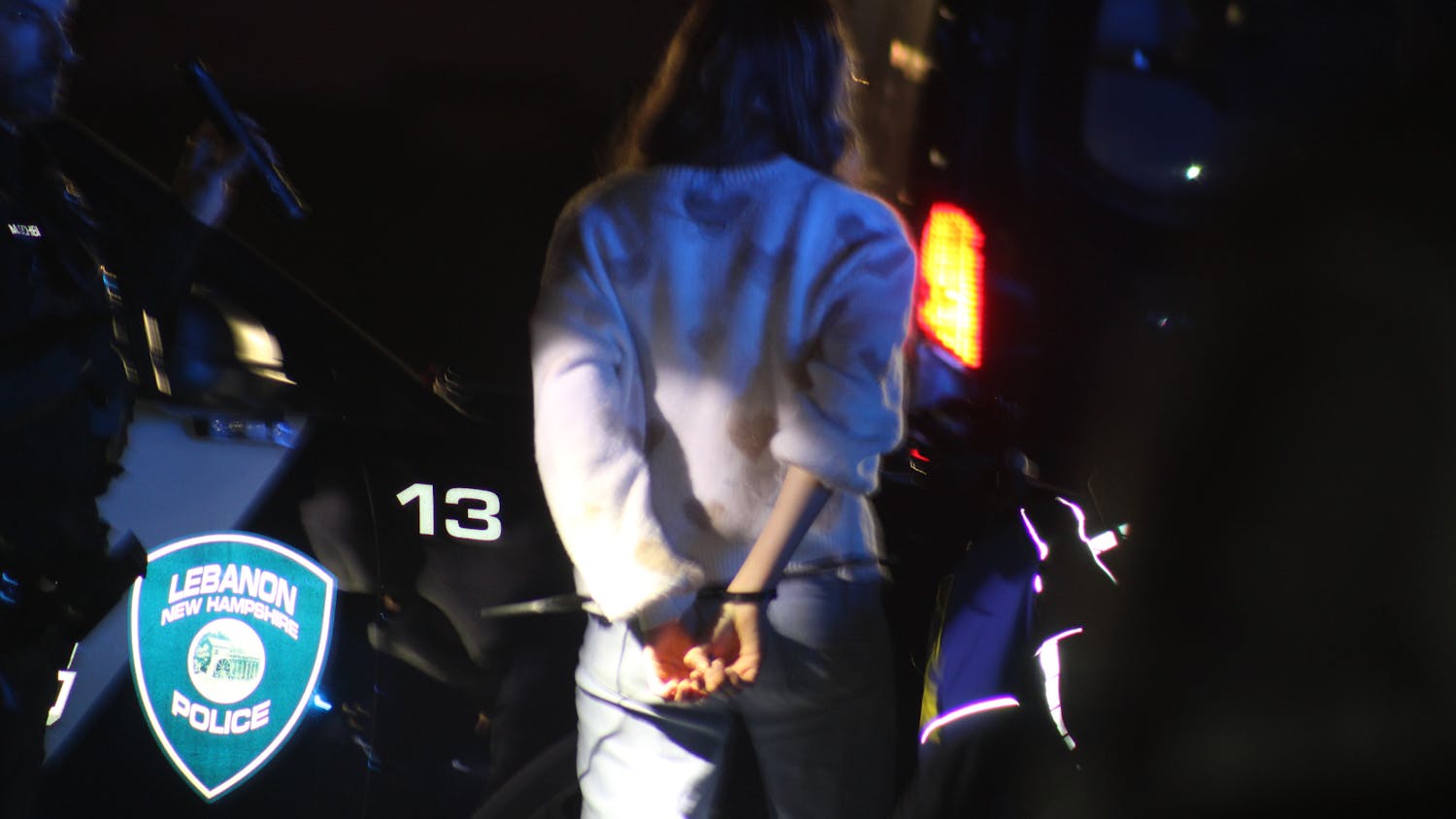On Jan. 14, the Political Economy Project — a professor-led interdisciplinary project that hosts talks on economics, politics and philosophy — hosted government professor William Wohlforth for an event titled “Great Power Subversion.”
In his lecture, Wohlforth presented the key ideas of his new book, “A Measure Short of War: A Brief History of Great Power Subversion.” In the book, published on Jan. 7, Wohlforth and co-author and historian Jill Kastner cover the history of great power subversion, defined by Wohlforth in his lecture as acts seeking to “undermine [the] accepted authority” of other great powers. Kastner, who is an independent scholar based in London, was not present at the event.
In an interview with The Dartmouth prior to the lecture, Wohlforth said “we need to know more” about great power subversion because it “could corrode democracy.”
“[Great power subversion] could generate very powerful and potentially unintended responses,” Wohlforth said. “To unpack the history of this phenomenon, [Kastner] and I decided to research [great power subversion] and write a book about it.”
According to PEP director Henry Clark, the event aimed to provide students with new historical perspectives toward understanding politics and world affairs.
“The objective of the PEP in this particular lecture was to get [students] to think about world affairs, international relations, in a fresh way — a way that’s informed by history [and] that’s also informed by comparison across cultures, nations and continents,” Clark said in an interview after the event.
Wohlforth began his lecture by noting that many Americans, including himself, were “stunned” after the discovery of Russian attempts to interfere with the 2016 U.S. presidential election. According to The New York Times, Russian President Vladimir Putin “directed a vast cyberattack” with the goal of helping Donald Trump and “denying Hillary Clinton the presidency.” Intelligence agencies, including the CIA, FBI and NSA, concluded that Russia had interfered in the election by “late 2016,” with officials notifying President-elect Trump on Jan. 6, 2017.
“[Americans felt like] we [needed] to figure out what’s going on,” Wohlforth said. “Were we at war? Was the Russian attack extraordinary?”
Wohlforth said that following the discovery, he and Kastner held differing opinions on whether the Russian subversion attempt in 2016 was “unprecedented.” Kastner, unlike Wohlforth, did not believe that the Russian interference was “unexpected,” Wohlforth explained.
In his lecture, Wohlforth said there were three aspects that made the 2016 subversion “unnerving” to the American public: the “undeclared” and “sudden” nature of the subversion, which Wohlforth compared to a “part [from a] horror movie;” Russia’s status as a great power and the Russian government’s usage of cyberspaces and digital technology to facilitate subversive activity.
However, Wohlforth and Kastner concluded that great power subversions have a long history and have in fact “been far worse in the past,” according to Wohlforth.
“Democracies as polarized and more polarized than ours have dealt with worse subversions,” Wohlforth said.
Wohlforth pointed to past cases of subversion — such as the activities of Radio Liberty, an American media organization founded during the Cold War to broadcast information to the USSR — and defenses historically taken against it, such as the Alien and Sedition Acts of 1798, enacted to thwart attempts by France “to influence the United States” through the Democratic-Republican Party. He noted that many of the Founding Fathers had “a constant fear” of foreign subversion.
“Many of the institutions of the U.S. government were created in part to ward off that dire threat,” Wohlforth said. “One of them is one that I know all Democrats love: the Electoral College.”
The reason that attempts at great power subversion have been so common, Wohlforth said, is that subversion “promises potential big payoff” for a country.
“If you can find a way of manipulating the domestic policy of your target in a way that shifts policy in your direction … you’re getting big gains,” Wohlforth said.
At the same time, however, subversion has its costs, as it “undermines trust” with foreign governments, Wohlforth explained.
At the end of his lecture, Wohlforth advised listeners “not to exaggerate the implications” of subversion, even if they feel “fear” over events like those of 2016.
“Avoid overreacting to the threat of subversion,” Wohlforth also said in the interview. “Sometimes a febrile overhyped reaction to foreign meddling does [more harm] than the original subversion attempt.”
In the interview, Wohlforth said he hopes his research can help inform the public about subversion.
“[I hoped] to make citizens aware of the fact that democracies like ours, even polarized democracies like ours, have weathered the threat of subversion in the past,” Wohlforth said. “It gives you a sense of confidence and perspective and does give you some long-term lessons that help in framing policy responses.”
Government major Nelson Zhang ’27 said he attended the event due to his prior interest in the topic of great power subversion, which he said is “underappreciated by scholarly discussion.”
“I think [the event was] very informative, especially [when Wohlforth] talked about [how] great power subversion is often less effective than people think [it] to be,” Zhang said.




